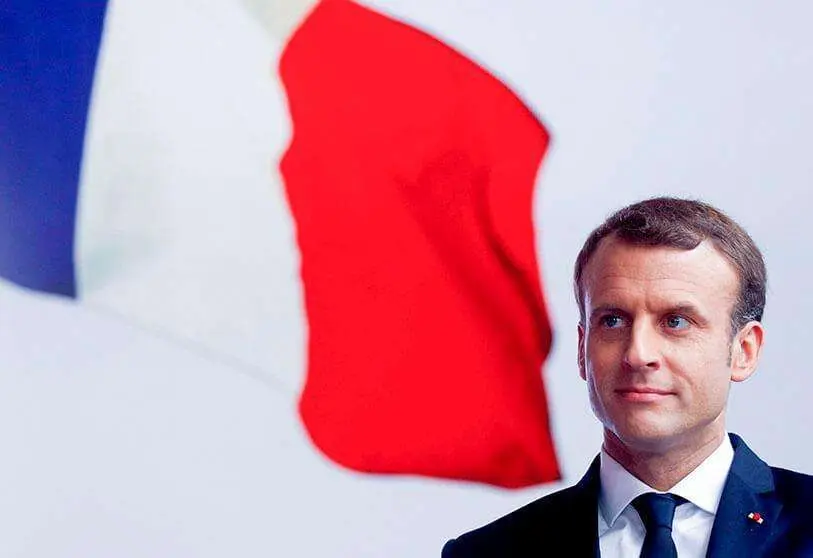France: closer to the truth about the Rwandan genocide

The current French president, Emmanuel Macron, has burst another pus abscess by receiving the conclusions of the report he commissioned two years ago on his country's role in the biggest genocide of the 20th century in Africa. "France, Rwanda and the Tutsi genocide (1990-1994)" is the title of a 1,200-page dossier by a team of historians led by Vincent Duclert, one of the world's leading specialists on crimes against humanity.
As he did with the thorny dossier on French colonisation and the Algerian war of independence, Macron has reopened wounds that were far from closed. It is obvious that the protagonists and direct witnesses of the events have their own memories and it will not be easy to get them to come over to the other side. It will be the years and the new generations that can bring about reconciliation, provided that the flames of resentment and historical hatred do not also flare up among them.
Twenty-seven years have passed since two surface-to-air missiles shot down the plane in which the Rwandan president, Hutu Juvenal Habyarimana, and the Burundian president, Cyprian Ntayamira, were about to land at Kigali airport on 6 April 1994, causing the death of both leaders.
Immediately, Rwanda's Hutu majority (85% of the population) unleashed a mass slaughter of the Tutsi minority (15%), in which moderate Hutus who tried to protect them also fell. Between 800,000 and a million people were massacred, mostly with machetes, in barely a hundred days, in which every imaginable horror was concentrated. In addition to the more extreme Hutu militias, including regular army soldiers, not a few peasants took up machetes, not for their agricultural work but to murder men, women and children in a massive orgy of bloodshed. The United Nations estimated that more than 250,000 women were raped, many of them before they were killed. Those who survived and carried their pregnancies to term would give birth to 300,000 children who today are the living symbol of that tragedy, which would last until mid-July 1994.
The report explicitly excludes France's complicity in the massacre, but points to the fact that Habyarimana's Rwanda was protected by the France then governed by the socialist François Mitterrand. In 1990-1993, Mitterrand had granted all the Rwandan president's requests to train and arm the police and army, which were made up almost exclusively of Hutus. In reality, those weapons and those teachings were serving Habyarimana to build the militias that would lead and carry out the genocide.
These facts, coupled with multiple warnings to the Elysée Palace by French military and civilian commanders stationed in the area that a massacre of major proportions was in the making, lead historians to conclude that France, and more specifically the Elysée presidential cabinet, faces "a heavy and overwhelming set of responsibilities".
The report also notes "the late reaction in launching Operation Turquoise, which, while it succeeded in saving many lives, did not prevent the extermination of the majority of Rwandan Tutsis in the first weeks [of the genocide]". The former head of the Military Cooperation Mission (MMC) in Kigali, General Jean Varret, told Le Monde this week that he was "relieved that after 26 years of sterile debate, light is beginning to be shed on the conflict".
Varret has lived all these years the terrible nightmare of having had to keep quiet about what he had seen and known in the face of the Elysée's policy of making that tragedy prevail in the context of an ethnic civil war. It was not by chance that he was removed from his post after publicly disassociating himself from that theory, imposed by President Mitterrand's circle of collaborators, and in particular by the very powerful Secretary General of the Elysée, Hubert Vedrine.
In contrast to presidents Nicolas Sarkozy, who called it simply a "political mistake", and François Hollande, who promised and then failed to open the Rwandan archives, Emmanuel Macron wants to rebuild relations with Kigali, which have been badly damaged ever since. However, not everyone in Africa simply accepts the Duclert Commission's conclusions. First of all, because it was made up exclusively of French historians, without giving a voice to Rwandan voices. Many of them believe that France blindly chose Habyarimana because he guaranteed a Francophone and Francophile Rwanda, within the so-called "Françafrique", as opposed to a Tutsi minority more inclined to lean towards Anglo-Saxon influences. No less than a million Rwandan Tutsis, then refugees in Uganda, Burundi and Congo, were ready to return to their country, Rwanda, with the blessing of the United States and the United Kingdom.
It is surely this power struggle that determines the sacrosanct raison d'état that led Hubert Vedrine to declare that he "always did the right thing" and that he would "carry out the same policy again".


